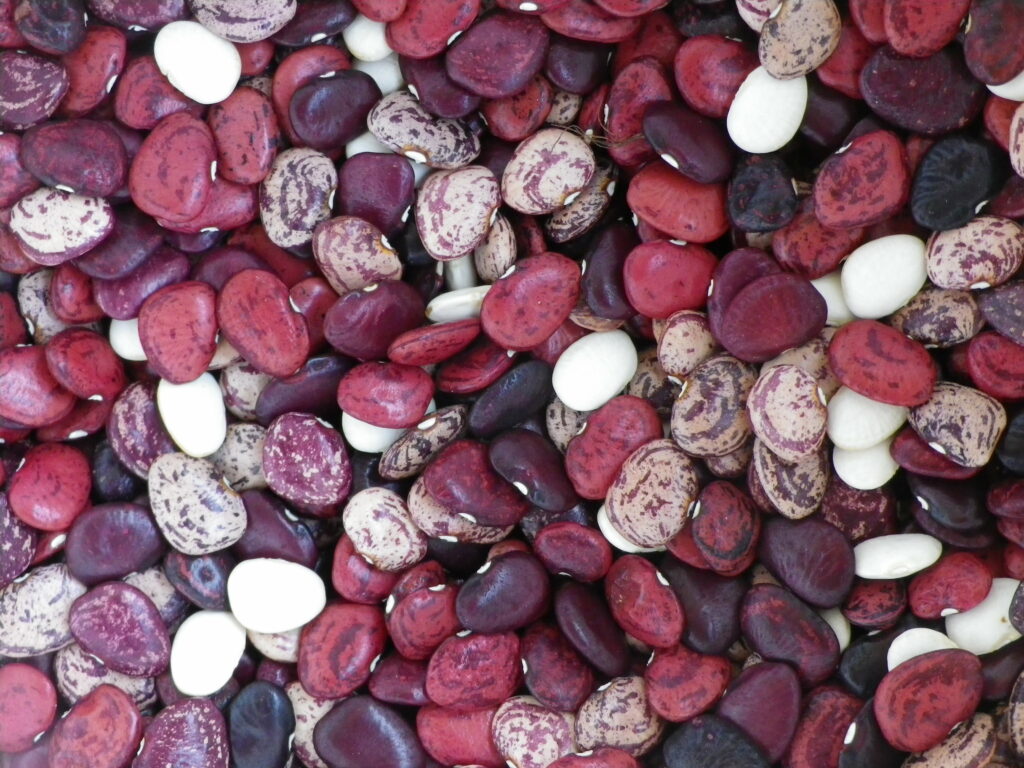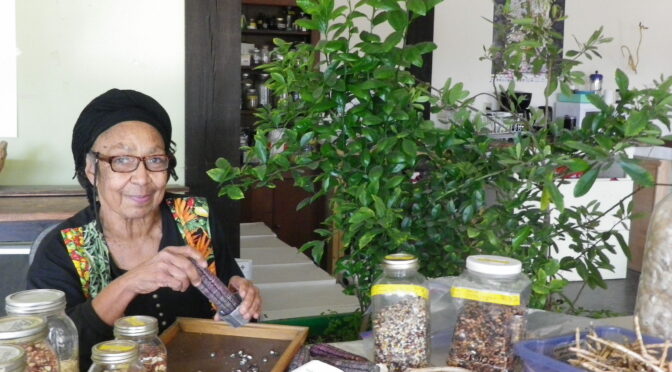There are so many good reasons to save seed. Earlier this year, we published a blog post of 22 reasons to save seed in 2022. It helps preserve genetic diversity, saves you money, increases your self-sufficiency, and much more. It’s also essential to share seed. This further contributes to maintaining your favorite varieties and can help promote food sovereignty in your community. Here are some ideas to share seed.
Give Seeds for Holidays, Birthdays, and Other Occasions
Seeds make great gifts if you know other gardeners or maybe folks interested in getting started! The holiday season is almost upon us, but birthdays and other special occasions are great options too.
You can package seeds in 1/4 or 1/2 pint jelly jars with a bit of fabric over the lid for a special touch. Alternatively, many printable DIY seed packets are available online, or there are ready-to-go packs in the SESE shop.
Join Seed Savers Exchange
Seed Savers Exchange has hosted a seed exchange since 1975! Using this virtual exchange, you can list fruit, vegetable, grain, flower, and herb seeds that you harvested and would like to share with others. You can also request seeds.
Donate to Seed Libraries
Like the little free libraries with books, seed libraries allow community members to seeds for free or sometimes for a nominal fee. They’re often located at libraries, community centers, or other public organizations. Currently, there’s a network of about 200 seed libraries registered across the U.S. You can find one near you to donate to or start your own. Check out the Seed Library website or view this seed library map.
 Connect with Your Local Master Gardener’s Program
Connect with Your Local Master Gardener’s Program
Many areas, both urban and rural, have master gardener programs. Master Gardener programs train volunteers to be community leaders working on environmental and horticultural projects. Your local master gardener group may know of local initiatives to share seed or be interested in helping to organize something.
Start Your a Seed Swap
If you don’t have any seed-sharing initiatives in your area, this is a great day to start one! Many community organizations may be willing to loan out a space for you to host a seed swap, or you can set up something virtual, like on Facebook.
Check Out The Community Seed Resource Program
The Community Seed Resource Program “wholeheartedly believe[s] that the non-commercial saving and sharing of open-pollinated seed makes the world a better place for everyone.” Their website is excellent for networking and finding resources for seed saving and setting up seed exchanges, seed libraries, and other seed-focused events.
Seed is better when it’s shared. Use these ideas to get started sharing seed in your community, whether it’s through a seed swap, an initiative to help low-income gardeners, or just with family, friends, and neighbors!

